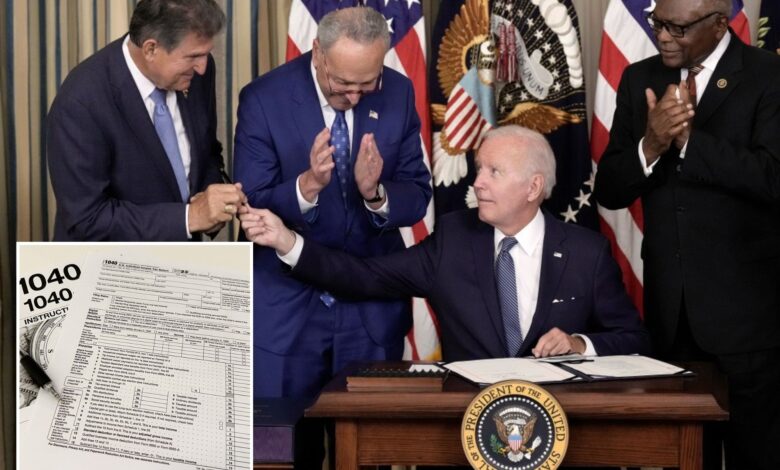IRS hit Americans with $7B in tax penalties last year

The Internal Revenue Service levied $7 billion in tax penalties last year — nearly four times the $1.8 billion that it assessed in 2022 after the Biden administration swelled the agency’s ranks, according to a report.
The majority of the fines hit those who underpaid their estimated quarterly income taxes such as business owners, gig workers, investors and others who do not typically withhold federal income tax payments from their checks, according to The Wall Street Journal.
In fiscal year 2023, the average estimated tax penalty rose to $500 from $150 from the previous year, according to IRS data cited by the Journal.
If non-employees underpay their quarterly estimates, they are subject to penalties in the form of an interest charge.
Since interest rates have spiked in recent years, the penalty rate has also increased — from just 3% in 2021 to 6% in 2022.
Last year, the rate rose to 8% for the fourth quarter. The increased rate remained in effect through the first two quarters of this fiscal year.
“These charges can hit hard, so getting it right can save people hundreds or even thousands of dollars a year,” Richard Pon, a San Francisco-based accountant, told The Washington Post.
While employees usually have their paycheck withheld, others need to pay some or all of their federal income tax on a quarterly basis.
The deadline for sending second-quarter tax payments to the IRS is Monday.
Tax revenues are expected to rise by as much as $561 billion from 2024 to 2034, thanks to stepped-up enforcement made possible with money from the Democrats’ Inflation Reduction Act, which became law in August 2022.
The Inflation Reduction Act gave the IRS an $80 billion infusion of funds. and led to the hiring of thousands of additional staffers.
Earlier this year, the Treasury Department released a study which showed that the IRS is poised to take in hundreds of billions of dollars more in overdue and unpaid taxes than previously anticipated.
The Congressional Budget Office in 2022 estimated that the tens of billions of new IRS funding provided by the IRA would increase revenues by $180.4 billion from 2022 to 2031.
However, House Republicans built a $1.4 billion reduction to the IRS into the debt ceiling and budget cuts package passed by Congress last summer.
A separate agreement took an additional $20 billion from the IRS over the next two years to divert to other non-defense programs.
With Post Wires




